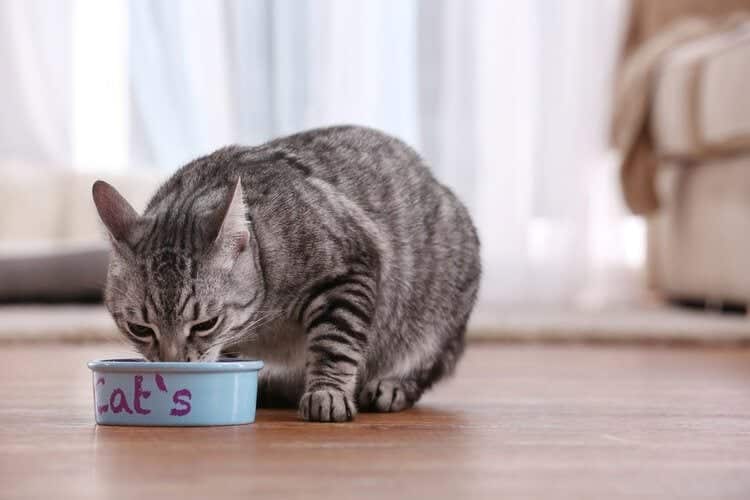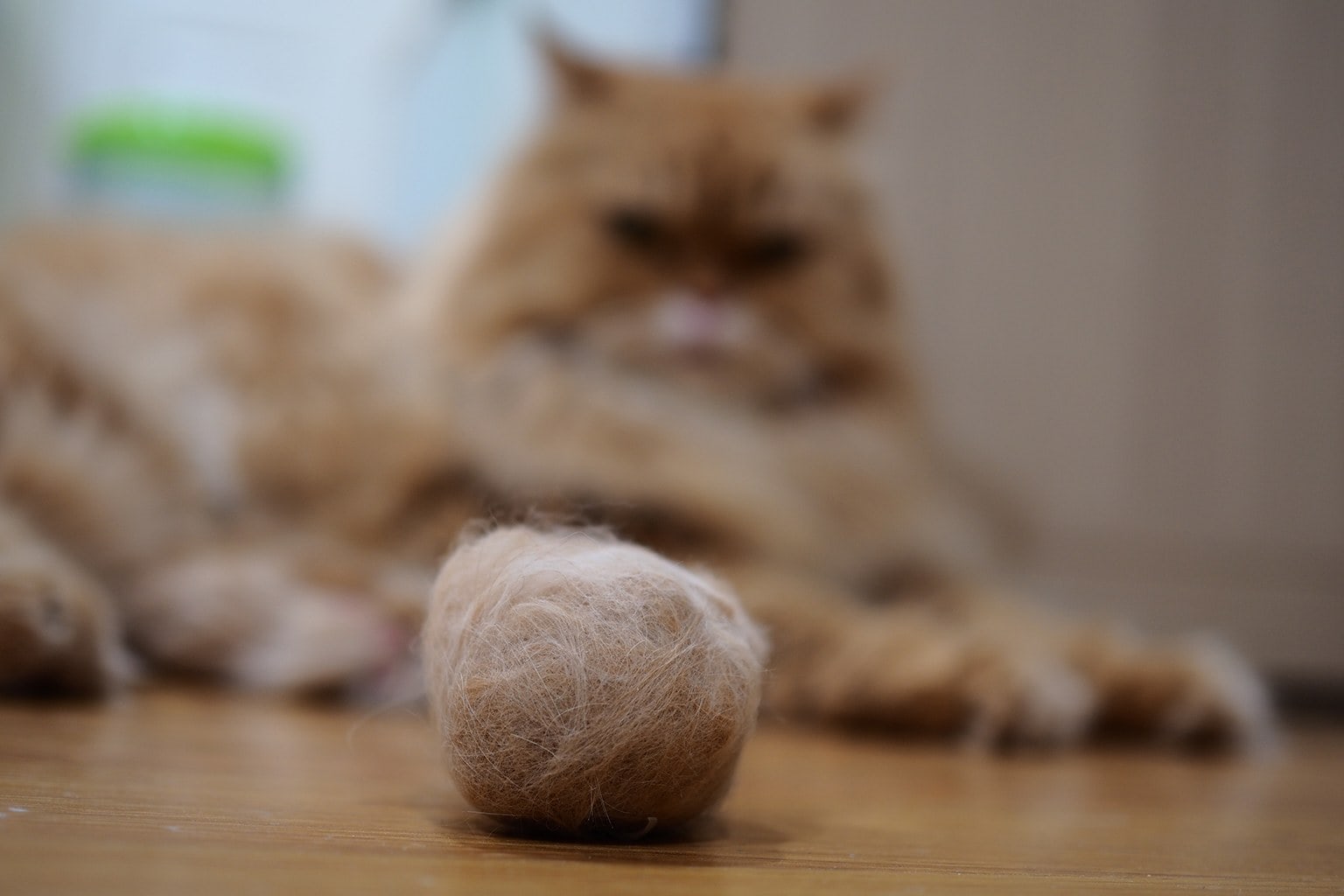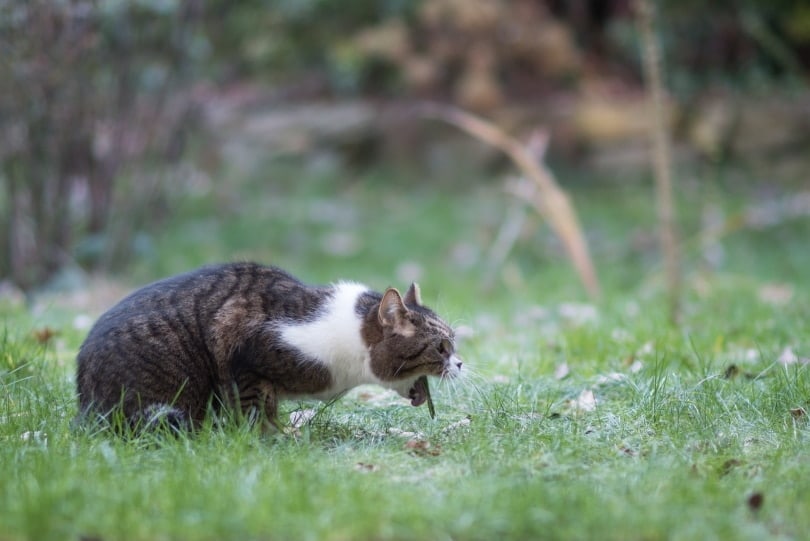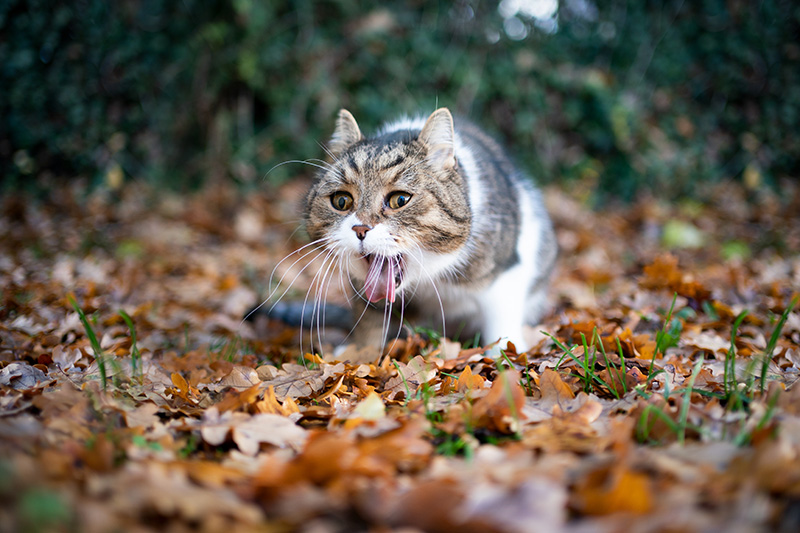If you’ve noticed your cat gagging recently, you may be wondering why it’s happening and whether you should be concerned. Gagging can have different meanings to different people, including choking, unproductive vomiting, and coughing. While occasional gagging may not be serious, it’s important to have your cat seen by a veterinarian to determine the cause. In this article, we’ll explore seven common reasons why your cat might be gagging.
1. Speedy Eating
Sometimes, cats can gag after eating their food too quickly. This can also lead to regurgitation of undigested food. If you have multiple cats, resource competition during mealtime may be a contributing factor. Feeding them in different locations can help reduce conflict and prevent speedy eating. Interactive and slow feeders are also helpful for cats that tend to get carried away at mealtime.

2. Hairballs
Hairballs are a common cause of gagging in cats. When cats groom themselves, they sometimes ingest too much hair, which can accumulate in their digestive tract. In an attempt to get rid of the hairballs, cats may vomit or cough. Occasional hairballs are usually normal, but if your cat is struggling with them regularly, it’s best to consult a veterinarian, as it could indicate underlying health issues.

3. Upset Stomach
Nausea can lead to unproductive vomiting, which may be mistaken for gagging. Cats can experience upset stomachs from eating something that doesn’t agree with them, such as new food or food allergies. Conditions like inflammatory bowel disease and kidney disease can also upset their stomachs. Look out for signs of nausea, such as excessive saliva production, tiredness, overgrooming, lack of appetite, or lethargy.
4. Respiratory Conditions
Respiratory conditions in cats can cause coughing, which may be confused with gagging. Bacterial and viral infections can lead to upper respiratory infections, resulting in inflammation, sneezing, and excessive mucus production. Feline herpes virus and feline calicivirus are common culprits. Other conditions like pneumonia and pleural effusions can also cause coughing. If your cat has a persistent cough, it’s important to have them evaluated by a veterinarian.
5. Foreign Objects
Cats are known for nibbling on things they shouldn’t, which can sometimes lead to gagging. Foreign objects can get stuck in their digestive tract, causing vomiting and abdominal obstructions. Toys, plants, and buttons are just a few examples of objects cats may ingest. If you suspect your cat has eaten something dangerous, contact your veterinarian immediately.

6. Toxins and Irritants
Vomiting and coughing can be signs that a cat has been exposed to toxic substances or irritants. Cats can be sensitive to litter dust, fragrances, and essential oils. Some essential oils are highly toxic to cats. Other common items that can cause problems include bleach, rodenticides, deicing salts, and certain plants. If your cat has been exposed to anything toxic, contact your veterinarian and provide them with all the necessary information.
7. Asthma
Cats with asthma may have dry, unproductive coughs that can resemble gagging. Dust mites, cat litter particulates, and strong scents can trigger asthma attacks in cats. If your cat has a persistent cough, it’s important to have them evaluated by a veterinarian. Treatment usually involves long-term use of anti-inflammatory medication and management of triggers.
Remember, occasional gagging in cats is usually not a cause for major concern. However, if the problem persists, it’s best to seek veterinary advice. Maintaining your cat’s overall health and addressing any underlying issues are key to preventing recurrent gagging episodes.
To learn more about cat health and care, visit Pet Lovers Diary.
